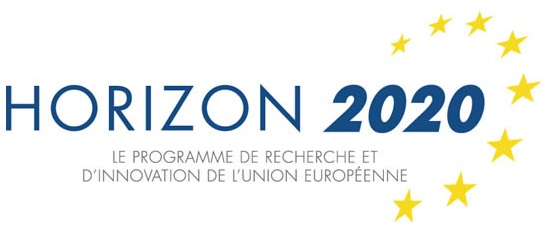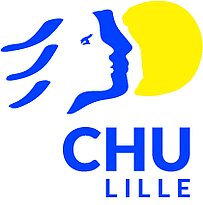Dissemination activities of CorDial-S
Publications
I. Engelmann, E. Kazali Alidjinou, J. Ogiez, Q. Pagneux, S. Miloudi, I. Benhalima,M. Ouafi, R. Sana, D. Hober, A. Roussel, C. Cambillay, D. Devos, R. Boukherorub, S. Szunerits
Preanalytical issues and cycle threshold values in SARS-CoV-2 real-time RT-PCR testing: should test results include these?
ACS Omega, 2021, 6 (10), pp.6528-6536.
https://pubmed.ncbi.nlm.nih.gov/33748564/
https://hal.archives-ouvertes.fr/hal-03196337
C.Holohan, S. Hanarahan, N.Feely, P. Li, J. O’Connell, C. Moss, M.Carr, O. Tagit, G. U Lee,
Influence of viral transport media and freeze-thaw cycling on the sensitivity of qRT-PCR detection of SARS-CoV-2 nucleic acids;
Nanoscale, Issue 37, 2021
https://doi.org/10.1101/2021.06.18.448982
https://www.biorxiv.org/content/10.1101/2021.06.18.448982v1
H. Saada, Q. pagneuc, J; Wei, L. Live, A. Roussel, A; Dogliani, L. Die Morini, I. Engelmann, E. K. Alidjinou, A. S. Rolland, E. Faure, J; Poissy, J. Labreuche, G. Lee, P. Li, G. Curran, A. Jahari, J. A. Yunda, S. Mlinte, A. Legay, J.-L. Gala, D. Devos, R. Boukehrroub, S. Szunerits
Sensing of COVID-19 spike protein in nasopharyngeal samples using a portable surface plasmon resonance diagnostic system
Sensors and Diagnostics 2022, 1, 1021
https://pubs.rsc.org/en/content/articlelanding/2022/sd/d2sd00087c
S. Szunerits, H. Saada, Q. Pagneux, R. Boukherroub
Plasmonic Approaches for the Detection of SARS-CoV-2 viral particles
Biosensors 2022, 12 (7), 548
https://www.mdpi.com/2079-6374/12/7/548
French Team Awarded €2.3M to Develop SPR-Based Point-of-Care Test for SARS-CoV-2
NEW YORK – A consortium led by investigators at the University of Lille in France has been awarded €2.3 million ($2.7 million) to develop a surface plasmon resonance-based device for detecting SARS-CoV-2 at the point of care. The effort, called "Coronavirus diagnostics using surface plasmon resonance," or CorDial-S, is funded to run for the next 12 months.
The effort is one of 23 research projects selected as part of a new, €128 million EU package to combat COVID-19.
CorDial-S : un projet lillois de recherche sur le Covid-19 financé par l’Europe
La Commission européenne a sélectionné ce mois-ci 23 nouveaux projets de recherche sur le Covid-19 qu’elle soutiendra à hauteur de 128 millions d’euros dans le cadre de son programme-cadre Horizon 2020. Des équipes françaises sont impliquées dans 12 de ces projets, parmi lesquels le projet CorDial-S, coordonné par Sabine Szunerits (IEMN) et David Devos (CHU) qui vise à développer un « test de résonance plasmonique de surface portable et rapide pour le Covid-19 ». L’étude préliminaire de ce projet a d’ailleurs été soutenue dans le cadre de la task force lilloise de recherche sur le Covid-19.
Méthodes diagnostiques du COVID-19
Poser rapidement le diagnostic de COVID-19 – récemment renommé COVID – avec le plus d’exactitude possible est la pierre angulaire du contrôle de la pandémie. Mais cette évidence partagée par tout un chacun se heurte au caractère véritablement multiforme de l’infection par le SARS-CoV2, appelée COVID-19 : à côté des formes restant totalement asymptomatiques, on observe en effet des formes légères ou pauci-symptomatiques, des formes modérées à sévères, ces dernières nécessitant des soins hospitaliers, et enfin des formes très graves nécessitant une admission en soins intensifs et une ventilation assistée. L’ensemble de ces manifestations de l’infection virale est susceptible de contribuer à la transmission du virus dans les collectivités. Parmi les tests diagnostiques qui nous permettent de confirmer le COVID, la réaction de transcription inverse suivie d’une réaction de polymérisation en chaîne quantitative en temps réel (RT-qPCR), et le test de diagnostic rapide basé sur la détection de l'antigène spécifique du SARS-CoV-2 sont deux méthodes utilisées dans la phase précoce des manifestations infectieuses. Les tests de détection des anticorps sériques (ELISA et test de flux latéral) sont utilisés dans la phase ultérieure et après la guérison. En l’absence de « test de référence » parfait, les sensibilités et spécificités respectives citées dans les différentes études doivent être considérées avec prudence et ne seront donc que brièvement commentées.
Gala J.-L,; Nyabi O.; Durant J.-F,; Chibani N.; Bentahir M. Méthodes diagnostiques du COVID-19, Louvain Médical, Mai 2020
https://www.louvainmedical.be/fr/article/methodes-diagnostiques-du-covid-19
Affinité Instruments
We are happy that Affinité Instruments has joined our common efforts on the development of a portable SPR based COVID-19 diagnostic platforms. Their platform is currenlt employed for the Clinical Trial study with the CHU Lille on saliva samples for 100 COVID-19 positiv and negative patients.
Webinar: Do you think surface plasmon resonance (SPR) can and should be available for multi-faceted biosensing applications?
Surface plasmon resonance (SPR) is considered a gold standard technique for drug screening but instruments are traditionally only found in large pharmaceutical companies with high-throughput and automation design in mind. As a result, SPR is seen as an inaccessible option, being complex and costly to operate. However, SPR can and should be available for multi-faceted biosensing applications as it is inherently a sensitive, real-time, and label-free technique.
Affinité Instruments has made it its mission to offer portable, affordable and easy-to-use SPR to enable all life science researchers to use it as a tool for quick binding analysis, bioproduction quality control, biomarker identification, assay development, and even in vitro diagnostics.
In this webinar, you will have the opportunity to hear from Prof. Jean-François Masson, from the Université de Montréal, Canada, as he shares his experiences in developing portable SPR instrumentation for clinical and medical applications. Horizon 2020 CorDial-S project leader, Prof. Sabine Szunerits, from the Université de Lille, France, who will talk about her latest work using portable SPR to develop saliva-based point of care tests to detect SARS-CoV-2. Plus, hear from an Affinité application scientist, who will explain what it really means to have a portable SPR in your lab and how it can act as a ‘swiss army knife’ in any life science lab to be used anytime, anywhere.
Key Learning Objectives:
• Understand how SPR has evolved from pharma instrumentation into a portable format, and learn its advantages
• Learn about how portable SPR can be used in assay development and in turn used in point of care in vitro diagnostics
• Learn about how portable SPR can be part of everyday workflows to increase R&D efficiency
Who Should Attend:
• Researchers studying biomolecular interactions who need easy access to get binding, affinity, and biokinetics data
• Clinical labs who want to speed up and reduce cost of ELISA-based assays
• Organizations developing lateral flow assays
• R&D labs who want to increase confidence and save cost before high-thoughput SPR runs
• Companies who want to quickly and economically bring multiplex tests onto a sensitive point of care platform
Presented by:
Prof. Jean-Francois Masson
Prof. Sabine Szunerits
Research Topic on Al for Nanobiotechnology in Frontiers
One of the three topic Editors: Sorin Melinte [Université catholiqude Louvain]
New technologies and Artificial Intelligence (AI) are increasingly supporting developing the future of medicine and medical technologies. Among these, multidisciplinary technologies such as nanobiotechnology are challenged on many fronts including the large data generated, data mining, curation, lack of standards, and subjectivity of the interpretation which could lead to errors and bias. As a consequence, possible problems concerning the process of decision-making practices could arise. Hence, AI can support the development of nanobiotechnology by synergizing across the many fields of science involved. Machine learning and/or deep learning can represent a novel approach for data mining and analysis of large amounts of datasets, predicting possible outcomes in a way that would not be possible in another way.
There is a gap in the State of the Art between the synergistic approach between nanobiotechnology and artificial intelligence as decision-making process for product development. The goal of this Research Topic is to highlight and bring forward currently emerging and ongoing research presenting how AI, Machine Learning, or deep learning can enable or accelerate the exploration of new technologies and their introduction into the market.
https://www.frontiersin.org/research-topics/31068/ai-for-nanobiotechnology








